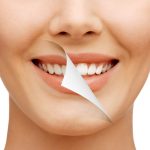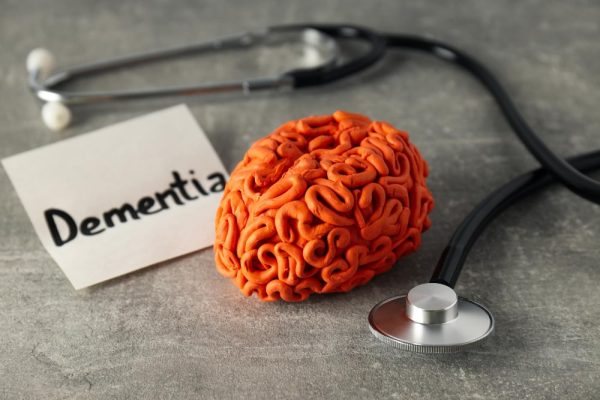A gorgeous smile takes work. As with any other part of your body, if you want it to look good, you have to put in the effort. While brushing your teeth should be apart of your everyday routine, it’s not enough.
By incorporating other elements into your daily cleaning, you can avoid serious dental issues like gum disease.
With that said, if you need tips on how to care for your teeth, take a look at the information below:
Table of Contents
1. Brush Twice a Day
Brushing your teeth once a day does the bare minimum to ensure that your teeth stay healthy. To properly care for your mouth, brushing twice a day is the way to go.
If you only brush in the morning, you’re neglecting to cleanse your teeth from a long day of eating. Think about it, if you let all the food and sugar that you’ve consumed throughout the day sit on your teeth, it can lead to plaque and tartar build-up.
When you brush your teeth, it’s also important to clean your tongue. Doing so helps to get rid of bad breath and prevent other oral health issues.
In addition to your tongue, make sure that you brush in a circular motion. It gets rid of plaque more effectively.
Making sure that you brush your teeth correctly to remove plaque reduces the risk of gingivitis, which is an early sign of gum disease.
2. Floss Regularly
Flossing feels nice for pulling out particles of meat, fruit peels, and popcorn kernels. However, you shouldn’t only floss when you have something stuck between your teeth.
Flossing is actually needed to remove plaque build-up, stimulate the gums, and reduce inflammation. If you floss every day, it provides many benefits and it combats against serious oral diseases.
To incorporate it into your dental cleaning routine, make a habit of flossing before or after you brush.
3. Incorporate Mouthwash
Most people think that using mouthwash is for extra fresh breath. While it does provide pleasant smelling breath, it’s also beneficial for oral care.
It minimizes the amount of acidity in your mouth, and it gets into the crevices that your toothbrush can’t reach. Furthermore, mouthwash re-mineralizes your teeth. It also kills more harmful bacteria that can ruin your oral health.
4. Stay Away From Sugary and Acidic Food
Sugar turns into acid within the mouth, which leads to the erosion of tooth enamel. Unfortunately, this kind of damage can also cause cavities.
Food and drinks like tea, coffee, and fruit can all be harmful to your teeth and wear down the enamel. You don’t have to avoid these foods and beverages altogether, but it’s a good idea to limit them.
5. Drink More Water
Drinking water is good for your body in general. However, it also plays a huge role in your oral health. It’s a good idea to drink water after each meal. By doing so, it washes away acidic foods and beverages.
Plus, drinking water helps with dry mouth. A dry mouth can lead to bad breath, but staying hydrated can prevent that.
6. Choose a Fluoride Toothpaste
Fluoride toothpaste is essential for oral care. It’s the leading defense to combat tooth decay. It fights germs that cause tooth decay and also provides a protective shield around the teeth.
When it comes to having clean teeth, using the proper toothpaste makes a huge difference.
7. Visit the Dentist Twice a Year
Well, if you don’t go to the dentist, the tips above will only be of minimal help. On the other hand, a dentist can deep clean your teeth in a way that regular brushing and flossing can’t.
These teeth cleaning tips are only effective if you have regular dental appointments. So, don’t wait too long in between visits.
Going to the dentist is similar to going to the doctor for checkups. You might feel fine and take your vitamins every day, but a physical exam ensures that there isn’t an underlying condition that you’re unaware of.
If you’re someone who has gum disease and other oral disorders in your history or your family, staying on top of dental appointments is essential.
Click the highlighted link to learn more about periodontal maintenance cost.
The Most Common Oral Diseases
It’s not enough to know how to care for your teeth. But it’s important to know why you should do it. Below are the most common oral disorders:
Cavities
Cavities are the most common dental issue. They destroy tooth enamel and create holes in the teeth.
Individuals who get cavities generally require fillings to correct the problem. Dental caries, also known as cavities, are primarily caused by plaque build-up.
Gum Disease
Gum disease is also referred to as periodontal disease. It causes bleeding gums, tooth loss, and inflammation. It’s created by gingivitis that’s brought on by plaque irritating the gums.
Periodontal disease also causes the gums to recede, which is painful and leads to infection. People with gum disease often have to get root canals and dental crowns to replace their teeth.
Oral Cancer
In addition to other areas of the body, cancer can affect the mouth and throat. By going to regular dental appointments, it helps to provide early detection if there’s a problem. Oral cancer doesn’t usually show early signs and symptoms, so checkups are extremely beneficial.
How to Care for Your Teeth: Make Your Smile Beautiful
Your oral care is just as important as the rest of your health. As long as you maintain dental cleaning at home, your smile will look amazing for years to come.
Were these tips on how to care for your teeth helpful? If so, keep reading more of our blog. Our website covers are a variety of informational topics to suit multiple readers.
Keep exploring to learn more!











